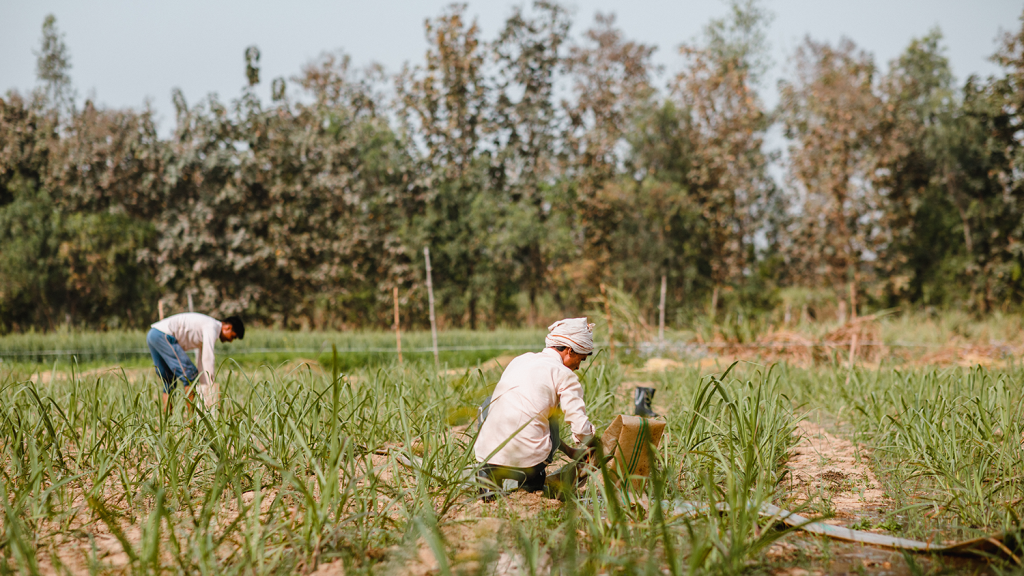28th September 2022

In October 2021, Bonsucro was awarded a grant from the ISEAL Innovations Fund, which is supported by the Swiss State Secretariat for Economic Affairs SECO, for a project to share learning and good practice with other voluntary sustainability schemes on due diligence and grievance mechanisms.
The project, which was carried out in partnership with the Responsible Jewellery Council, aimed to enable ISEAL Community members and their stakeholders to access resources on good practices for implementing due diligence systems and grievance mechanisms that align with the United Nations Guiding Principles on Business and Human Rights (UNGPs) and the Organisation for Economic Co-operation and Development (OECD) Instruments on Due Diligence for Responsible Business Conduct (RBC).
Project background
Conversations with other voluntary sustainability schemes revealed that our peers have been looking at their human rights policies and due diligence practices. It’s evident that there is a wide range of systems in place, with diverse experiences and limited peer-learning opportunities on this topic
We designed a project to understand best practices in due diligence and grievance mechanisms for the ISEAL community. The idea was to encourage transparency and facilitate peer to peer learning.
Three public resources
Bonsucro and the Responsible Jewellery Council contracted the business and human rights consultancy, twentyfifty, to understand the extent to which ISEAL Community Members have implemented human rights due diligence and how their processes work. We also wanted to understand how their practices aligned with the UNGPs.
twentyfifty then used the research to produce a briefing note, Learning on human rights due diligence among ISEAL Community Members. The document offers a summary of the key findings and aims to support ISEAL Community Members (and other multi-stakeholder initiatives) to strengthen their implementation of Due Diligence processes aligned with the UNGPs. We anticipate that the briefing note will be useful for the community as human rights due diligence is increasingly a requirement internationally, for example, the EU Commission’s proposal for a Corporate Sustainability Due Diligence Directive.
A second briefing note was produced: Grievance Mechanisms – Overview of good practice and current implementation by selected ISEAL Community Members schemes. To develop this, twentyfifty looked at how eight ISEAL Community Members, including Bonsucro, had developed and implemented a Grievance Mechanism.
The briefing note includes practical examples of good practice of how to introduce new grievance mechanisms, or strengthen existing ones. All suggestions made align with both the UNGPs and OECD guidelines.
As mandatory human rights due diligence laws, environmental, social and governance, and modern slavery reporting obligations evolve and strengthen, having an effective grievance mechanism in place can help businesses prevent, mitigate, and address risks in their supply chain. So, as part of the project, we worked with The Remedy Project to create a resource on how to successfully use third parties to support the design and implementation of grievance mechanisms for voluntary sustainability standards and the private sector.
The document supports voluntary sustainability standard setting organisations, businesses, or other industry groups to partner with a local third-party organisation to develop and/or implement a company or multi-stakeholder grievance mechanism that aligns with the UNGPs.
Worldwide learning
The three documents are available for anyone to download from our resources page. They have also been published on the ISEAL website. The aim is for other organisations around the world to learn from this research. We have translated the documents in Spanish, Portuguese, and French to facilitate this.
We have also presented the findings at a webinar for ISEAL Community Members.
Reflecting on our own systems
As part of the project, we reviewed our own due diligence process. This reflection has helped us identify clear ways that we can improve. We will be working in the coming months to improve the transparency of our due diligence process, the alignment with the UNGPs, and our tools and systems to carry out the process.
This project has been a valuable learning opportunity for Bonsucro. We implemented our first grievance mechanism in 2020. We are proud to have created a mechanism for our members but recognise that we are still learning, and we are committed to ensuring our systems continue to develop and improve.
What next?
These three documents provide a platform to exchange learning and experiences with other sustainability schemes. In the spirit of collaboration, a core Bonsucro principle, the resources will always be freely available. We plan to maximise opportunities to present the resources and key learning, including a session at this year’s Bonsucro Global Week.
If you want to find out more about our work on due diligence and grievance mechanisms, contact our Head of Corporate Services, Laura Fisher: laura@bonsucro.com.






